Wednesday☕️

Economics & Markets:
- Yesterday’s U.S. stock market:
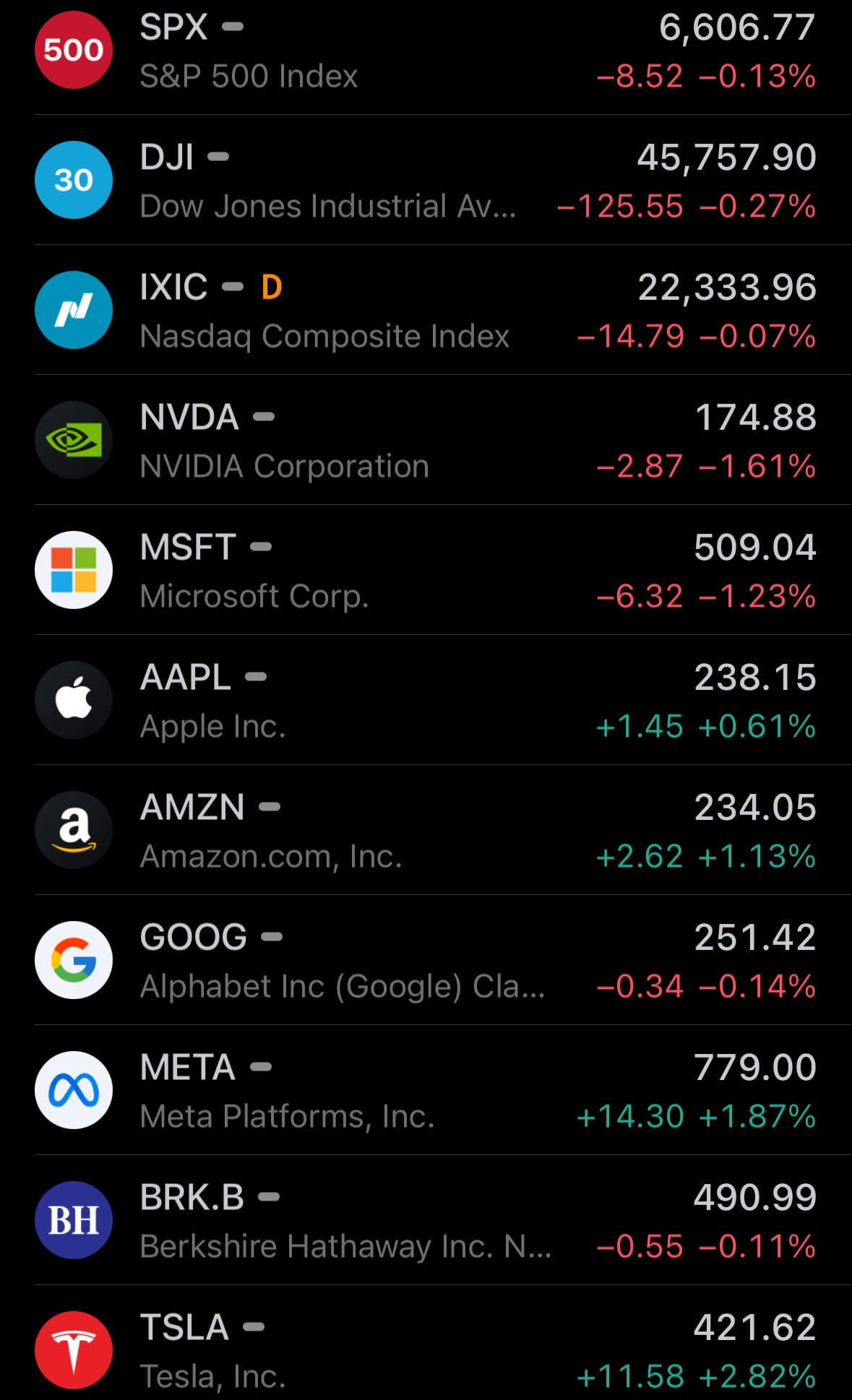
- Yesterday’s commodity market:

- Yesterday’s crypto market:
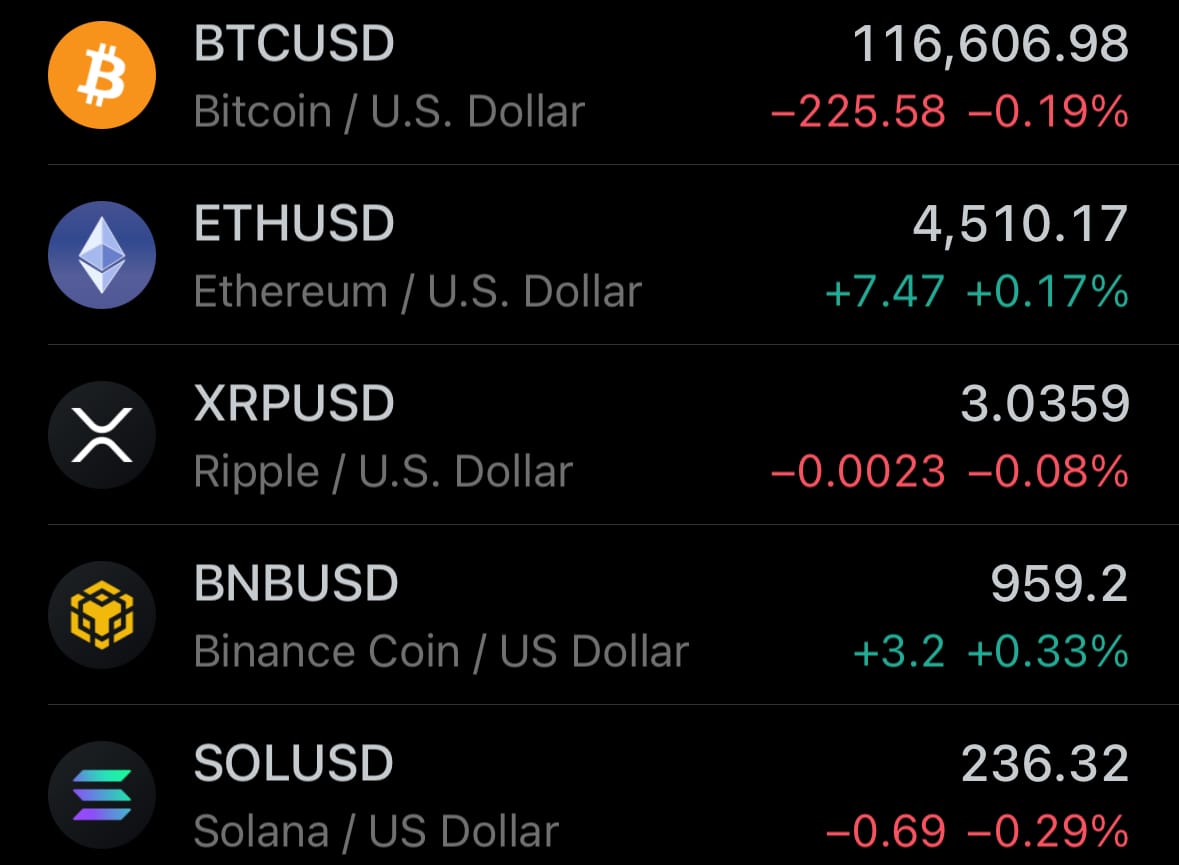
Geopolitics & Military Activity:
- On September 16, 2025, the Israeli Air Force conducted at least 12 airstrikes on the Houthi-controlled Hodeidah Port in western Yemen, targeting military infrastructure including docks and facilities used for weapons smuggling from Iran. The operation, confirmed by the Israeli Defense Forces, aimed to disrupt Houthi military capabilities and reinforce Israel's ongoing naval and aerial blockade in the Red Sea. Prior to the strikes, Israel issued an unprecedented comprehensive evacuation order for the entire port and surrounding areas, marking the first such directive for Hodeidah to minimize civilian risks. No immediate casualties were reported, though Houthi media claimed air defenses intercepted some attacks, and local outlets described significant damage to port structures.
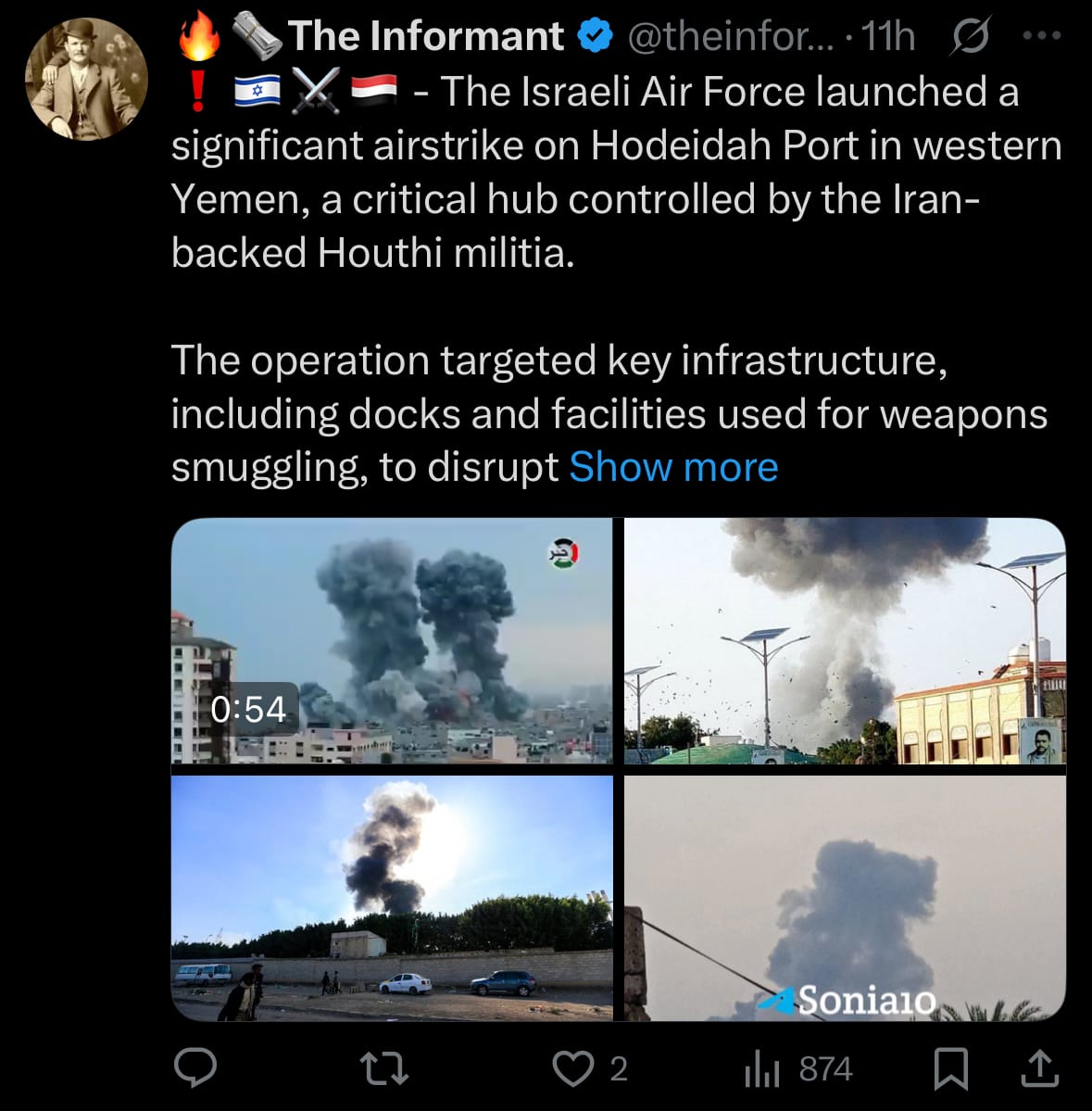
- The strikes followed a series of Houthi ballistic missile and drone assaults on Israel, including one on September 14 that prompted the escalation. Israeli Defense Minister Israel Katz stated the action was part of the blockade against the "Houthi terror organization," warning of severe consequences for further attacks on Israel. Prime Minister Benjamin Netanyahu monitored the operation from the Kirya command center in Tel Aviv. The port serves as a key conduit for both Iranian arms to the Houthis and humanitarian aid to Yemen, where restrictions have worsened the crisis affecting millions; international observers expressed concern over potential impacts on aid flows amid the broader regional conflict involving Iran-backed groups.

Environment & Weather:
- On September 16, 2025, a severe cloudburst caused flash flooding near the Tons River in Vikasnagar tehsil, Dehradun district, Uttarakhand, India, sweeping away a tractor-trolley carrying 14-15 migrant laborers from Moradabad and Sambhal districts as they attempted to cross the overflowing waterway around midnight on September 15. The incident resulted in at least six confirmed deaths, including three women and three men aged 22 to 60, with six others—primarily women—reported missing and two survivors rescued with injuries; initial reports cited eight deaths and five missing, but updated figures from local authorities reflect ongoing recovery efforts. Eyewitness videos showed the group clinging to the vehicle as it overturned in the strong currents, triggered by over 100 mm of rainfall in hours that swelled the river beyond safe levels, near SDBIT College and other local sites.
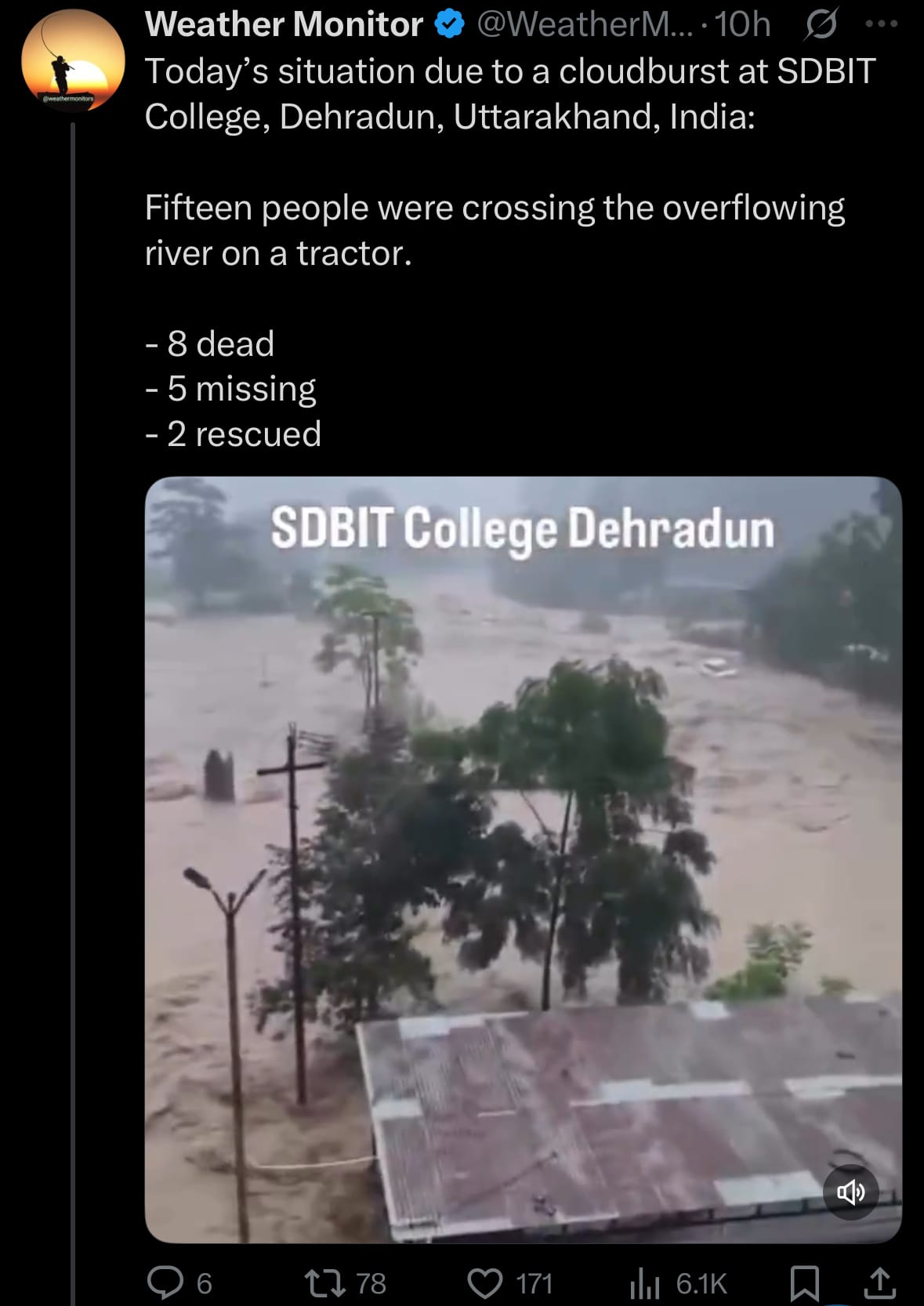
- Rescue operations by the State Disaster Response Force, National Disaster Response Force, and local teams continue amid challenging conditions, with bodies recovered and searches for the missing coordinated between Dehradun and the victims' home districts to aid families. The cloudburst has led to wider damage in Dehradun, including a bridge collapse near Prem Nagar Law College that washed away vehicles and shops along the Tamsa River, stranding over 900 people and contributing to a district-wide toll of at least 13 deaths and 16 missing. Chief Minister Pushkar Singh Dhami visited affected areas, ordering relief distribution and school closures, while the India Meteorological Department issued red alerts for persistent heavy rains in the Himalayan foothills.
Cyber:
- On September 16, 2025, Kering, the French luxury conglomerate owning brands including Gucci, Balenciaga, Alexander McQueen, and Brioni, confirmed a significant data breach that compromised personal information of approximately 7.4 million customers worldwide. The cyberattack, attributed to the ShinyHunters hacking group, involved the theft of names, email addresses, phone numbers, physical addresses, and total spending amounts from the companies' databases, with no financial details such as credit card numbers reported as affected. ShinyHunters initially claimed responsibility in 2024 for breaching Gucci and stealing 43 million records, but this incident exposed a consolidated dataset from multiple Kering subsidiaries, prompting the company to notify affected individuals and regulatory authorities in the European Union and United States.
- The breach has heightened concerns over customer data security in the luxury sector, where high-value clientele face risks of identity theft, phishing, and targeted scams, potentially leading to regulatory scrutiny under laws like the EU's General Data Protection Regulation (GDPR) and California's Consumer Privacy Act. Kering stated it has implemented enhanced cybersecurity measures and is cooperating with law enforcement, while experts note ShinyHunters' history of selling stolen data on dark web forums for profit. The incident underscores vulnerabilities in centralized retail databases amid rising cyber threats to consumer-facing industries, with analysts estimating potential fines and remediation costs in the tens of millions for the company.
Statistic:
- Largest public pharmaceutical companies by market capitalization:
- 🇺🇸 Eli Lilly: $685.52B
- 🇺🇸 Johnson & Johnson: $424.97B
- 🇺🇸 AbbVie: $384.42B
- 🇨🇭 Roche: $263.70B
- 🇬🇧 AstraZeneca: $248.20B
- 🇩🇰 Novo Nordisk: $247.86B
- 🇨🇭 Novartis: $237.68B
- 🇺🇸 Merck: $202.54B
- 🇺🇸 Amgen: $147.01B
- 🇺🇸 Gilead Sciences: $139.64B
- 🇺🇸 Pfizer: $135.88B
- 🇫🇷 Sanofi: $115.97B
- 🇺🇸 Vertex Pharmaceuticals: $100.34B
- 🇺🇸 Bristol-Myers Squibb: $94.34B
- 🇺🇸 CVS Health: $93.19B
- 🇬🇧 GlaxoSmithKline (GSK): $81.66B
- 🇯🇵 Chugai Pharmaceutical: $74.58B
- 🇦🇺 CSL: $65.72B
- 🇺🇸 Zoetis: $65.35B
- 🇨🇳 Jiangsu Hengrui Medicine: $64.81B
- 🇺🇸 Regeneron Pharmaceuticals: $60.94B
- 🇺🇸 Alnylam Pharmaceuticals: $60.45B
- 🇩🇪 Merck KGaA: $54.94B
- 🇨🇭 Lonza: $48.97B
- 🇯🇵 Takeda Pharmaceutical: $48.04B
History:
- Eli Lilly and Company was founded in 1876 by Colonel Eli Lilly, a pharmacist and Civil War veteran, with the goal of producing high-quality, science-based medicines at a time when the pharmaceutical market was largely unregulated. The company gained early recognition for its innovations in manufacturing and standardization. One of its most notable contributions came in 1923 when it became the first company to mass-produce insulin, significantly advancing diabetes treatment. Over the decades, Lilly expanded its research capabilities and played a role in developing and distributing other important drugs, including penicillin during World War II and fluoxetine (Prozac) in the 1980s, one of the first widely used selective serotonin reuptake inhibitors (SSRIs).
- Today, Eli Lilly is a major player in the global pharmaceutical industry, with a portfolio that includes treatments for diabetes, cancer, autoimmune diseases, and mental health conditions. Its recent developments in type 2 diabetes and weight management drugs, such as Trulicity and Mounjaro, have positioned the company prominently in these therapeutic areas. While some of its products have been widely adopted and commercially successful, debates continue around drug pricing, access, and long-term efficacy. The company’s history reflects a broader evolution in the pharmaceutical sector—from early-stage manufacturing to complex biopharmaceutical development—illustrating both the scientific advances and the commercial challenges of modern medicine.
Image of the day:
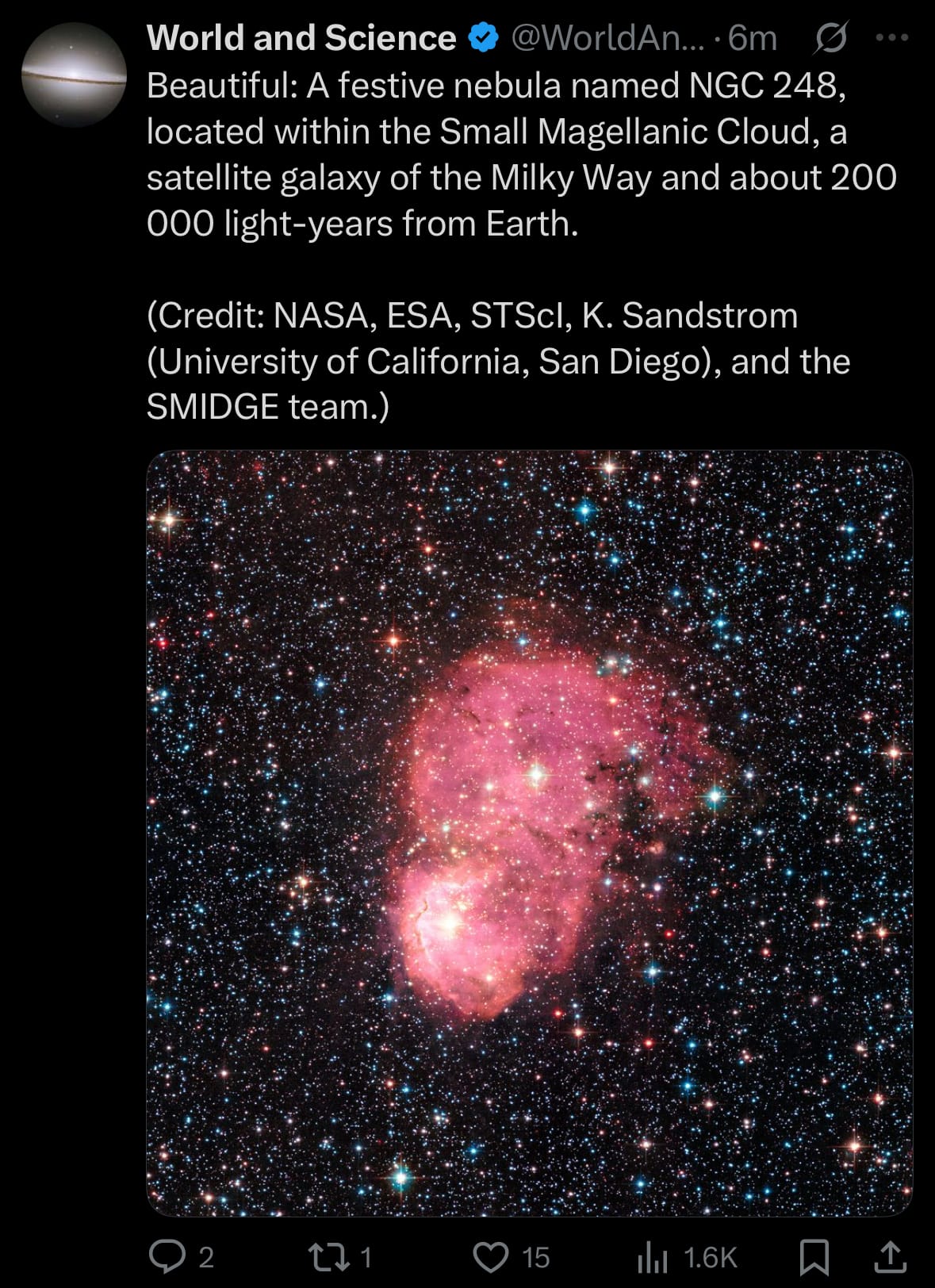
Thanks for reading!
Earth is complicated, we make it simple.
Monitor the planet with the Earth Intelligence System. Click the image below to view the Earth Intelligence System:
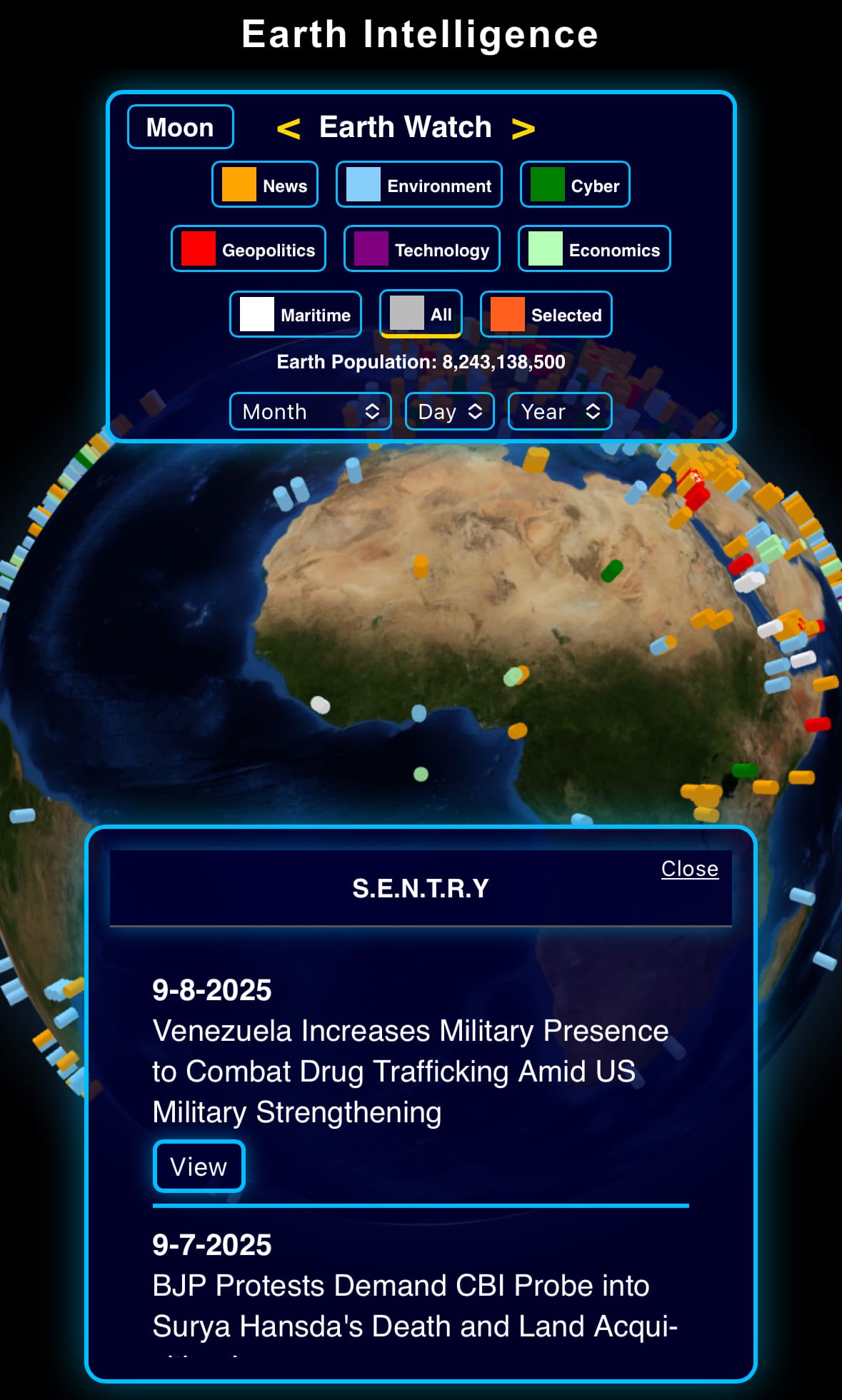


Support/Suggestions Email:
earthintelligence@earthintel.newshow




